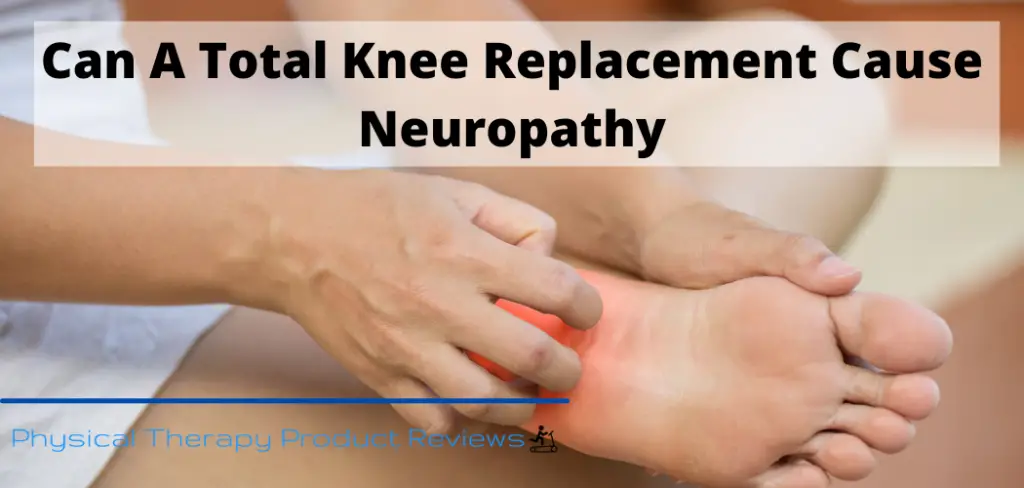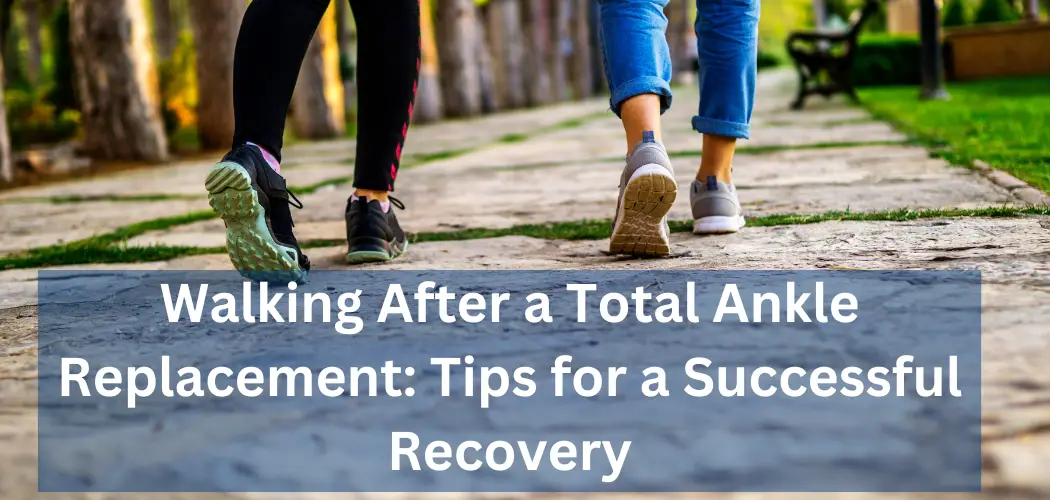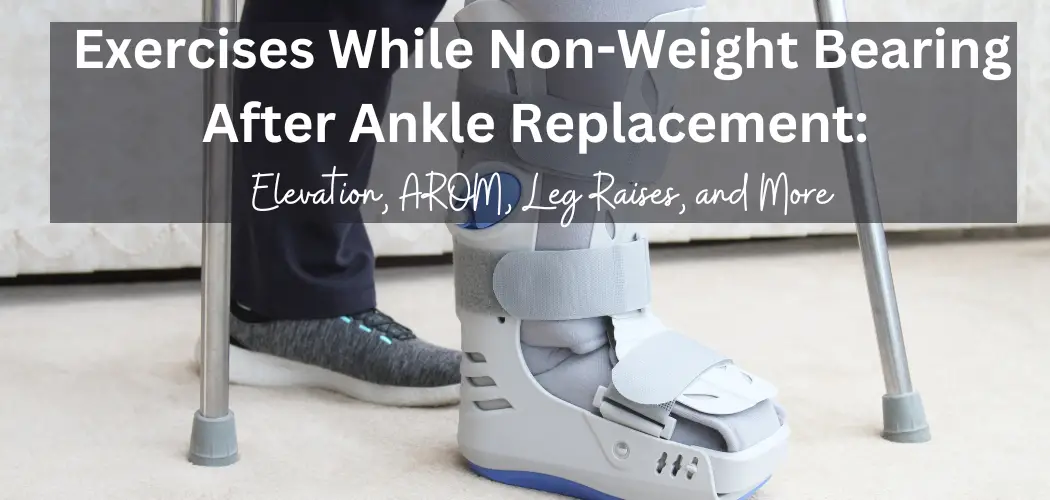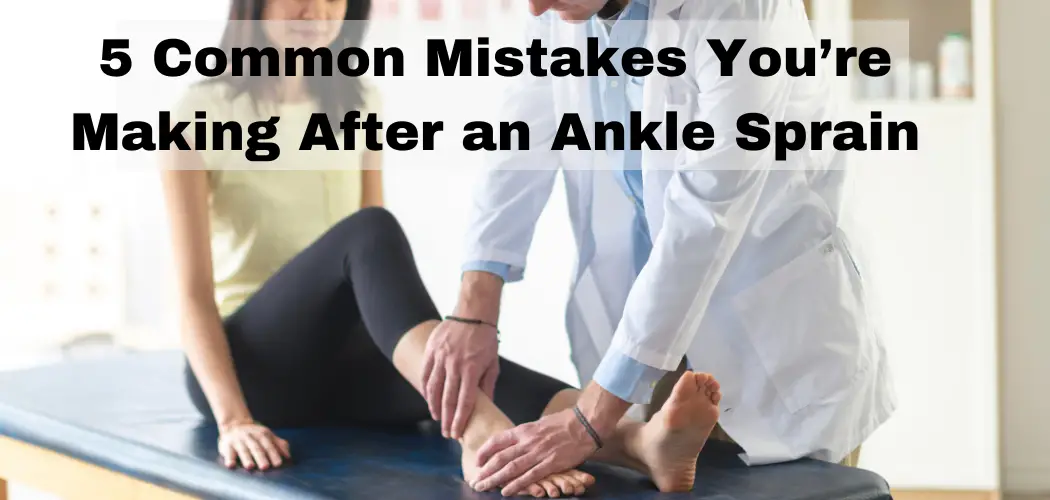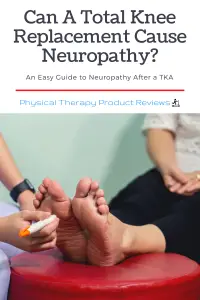 A total knee replacement is a surgical procedure that replaces the end of your femur with an artificial joint and removes the damaged cartilage between it. It’s one of the most common surgical procedures performed in the United States.
A total knee replacement is a surgical procedure that replaces the end of your femur with an artificial joint and removes the damaged cartilage between it. It’s one of the most common surgical procedures performed in the United States.
When people have total knee replacements, they may experience pain in their feet and legs as well as other symptoms such as tingling or numbness. Sometimes this is a normal and temporary response after surgery and sometimes it’s an abnormal response that can take longer to recover from. This article reviews if total knee replacement can cause neuropathy.
What is Neuropathy?
Neuropathy is the damage of nerves in your body. The most common causes of neuropathy are trauma, diabetes, and vascular diseases that cause a loss of blood flow to the nerves.
Most often, new neuropathy after surgery is caused by mechanical forces that are caused during surgery such as traction, compression or even the nerve being cut during.

Even though new neuropathies after a total knee replacement can occur they are extremely rare and most resolve themselves within 1-year without any further treatment.
How Long Does Neuropathy Last?
Neuropathy caused after surgery is typically a temporary condition. If total knee replacement does cause neuropathy, it will likely go away within 1 year.
The severity of the neuropathy depends on how long the nerve was compressed or how badly it was damaged.
Prior nerve health also plays an important role in how fast neuropathy will go away. If someone is diabetic or has a history of a nerve injury then the neuropathy can last longer. The less the nerve was hurt the faster the recovery.
Can a Total Knee Replacement Cause Sciatica?
Sciatica is a pain that shoots down the back of your leg and feels like it’s coming from your hip or buttock. This is due to compression or irritation of the Sciatic nerve. Sciatic nerve compression can occur during total knee replacement surgery, but is not common.
The most common cause of sciatic after a knee replacement is improper positioning during surgery in a person that has a prior history of sciatica and low back issues.

For example, during surgery, they have to position the surgical leg in the optimal position to make safe surgical cuts. Changing the leg positions and cause the back to extend. If there are arthritis changes severe enough in the back then this can cause compression on the nerve but you won’t know about it until after the anesthesia wears off.
Sciatica A Few Weeks After a Total Knee Replacement
Sciatica that starts a few days or even a week or greater from surgery may not have been caused by the surgery itself. After a knee replacement, your gait mechanics and walking are going to be quite different because of the pain and swelling in your knee. You’ll also be walking with a walker or in some instances crutches. The altered walking pattern can cause extra stress on the back and this may cause sciatica.
Can a Total Knee Replacement Cause Foot Drop?
Foot drop is a rare complication after total knee replacement that happens when the nerve and muscle damage has occurred to an area below your knee. The Peroneal nerve is the most commonly affected nerve after a total knee replacement, however, complications are still rare at less than 0.37% of all surgeries.
The main causes are related to surgery itself and may cause weakness in the foot resulting in a foot drop.
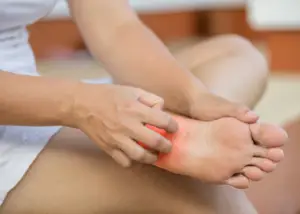
Is Numbness in the leg normal after a total knee replacement?
Numbness in the leg is not typical after total knee replacement. There is a slight numbness or paresthesia that does occur in almost all total knee replacements on the outside of the knee and the upper part of the shin.
The superficial nerve that supplies the sensation for that area of the knee is almost always cut during surgery. But don’t worry, that nerve isn’t that important and you will forget about it in the long run.
Numbness and tingling in the feet and toes or weakness that was not present in the foot or toes prior to surgery should be mentioned to your surgeon and other medical providers.
Can You Prevent Neuropathy From Happening After Knee Surgery?
The best thing that you can do is to notify the surgeon of any prior history of sciatica or nerve compression. It’s also to inform them of any history of diabetes or vascular disease that might effect the health of the nerves.
There is really nothing that you can do as a patient to prevent neuropathy after a total knee replacement. Most neuropathies occur during surgery, while the patient is under anesthesia and has no control over their body or positions.
Some ways to reduce the risk for total knee replacement related nerve compression is:
- Lowering intraoperative traction on nerves during total knee replacement
- Keeping legs straight during total knee replacement
- Not raising the legs off of the operating table during total knee replacement
- Using a tourniquet adequately to maintain blood flow through the leg so nerves don’t get compressed.
Can a Tourniquet Cause Neuropathy in a Total Knee Replacement?
A total knee replacement-related nerve compression in the legs can be caused by a tourniquet. A total knee replacement causes neuropathy by mechanical forces in the intra-operative setting (traction, compression or being cut) during surgery.
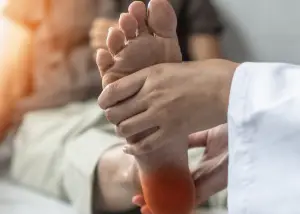
A tourniquet is a form of compression to prevent blood loss but can at times cause too much compression on the nerve. In general, tourniquets can be used safely for up to 3 hours without any issue and have been a part of orthopedic surgery for more than 50 years. Most total knee replacement surgeries do not last longer than 3 hours and thus is quite safe to avoid neuropathy from a tourniquet.
How Do I Know If I Have Neuropathy After Knee Surgery?
Neuropathy can be difficult to diagnose. Some symptoms might include:
- Numbness in the feet or toes
- Tingling sensations in the leg, feet, and toes
- Burning sensation of the skin, especially at night
- Weakness in the ankle that was not there previously
If you have any concerns that you might have neuropathy ask your doctor or physical therapist and they will be able to give you an honest diagnosis.
Many people believe that they have neuropathy after surgery but in reality, they do not.
How to Treat Neuropathy After a Total Knee Replacement?
If neuropathy is caused during a total knee replacement, there are treatment options available to help improve nerve function. As with most treatments for peripheral neuropathies, one option is physical therapy that includes exercises, stretching, and nerve-specific treatments.
Another common recommendation is a course of medications such as antidepressants or anti-convulsant. Ask your doctor if these are appropriate for your situation.
Nerve glides are a common way to help speed up the healing of nerves. Nerve glides are movements that stretch and “glide” the nerves through their available range of motion to promote healing.
See the helpful video here on how to do a sciatic nerve glide correctly to help the nerve heal faster.
Sciatic Nerve Flossing for Neuropathy
Can Swelling After a Total Knee Replacement Cause Neuropathy?
After a total knee replacement, swelling can cause neuropathy. Swelling in total knee replacements is common and the amount of swelling depends on a few factors such as how involved the surgery was and if there were any unexpected complications.
In severe cases, if swelling were to get out of control it can cause more nerve compression and increased pressure in the area. Typically as the swelling improves it will also help take some pressure off the nerves and make them a little happier.
Conclusion
It is important to note that total knee replacement can cause neuropathy, but this doesn’t mean it will. For those who are worried about the possibility of nerve damage after total knee replacement surgery, it is really quite rare at less than 0.3% of all total knee replacements. There are some things you can do to help reduce the symptoms of nerve injury after surgery. Almost all of the neuropathies caused during surgery improve to normal within 1 year.
Other Great Rehab Related Articles
How to Stay Active After Cervical Fractures: Expert Tips and Advice
Dealing with Painful Stairs After Ankle Replacement Surgery
Walking After a Total Ankle Replacement: Tips for a Successful Recovery
Exercises While Non-Weight Bearing After Ankle Replacement: Elevation, AROM, Leg Raises, and More
Ankle Pain with Stairs: Causes and Home Treatment Options
5 Common Mistakes You’re Making After an Ankle Sprain
Disclaimer: The information provided in this post is for educational purposes only. This is not a substitute for a medical appointment. Please refer to your physician before starting any exercise program.
